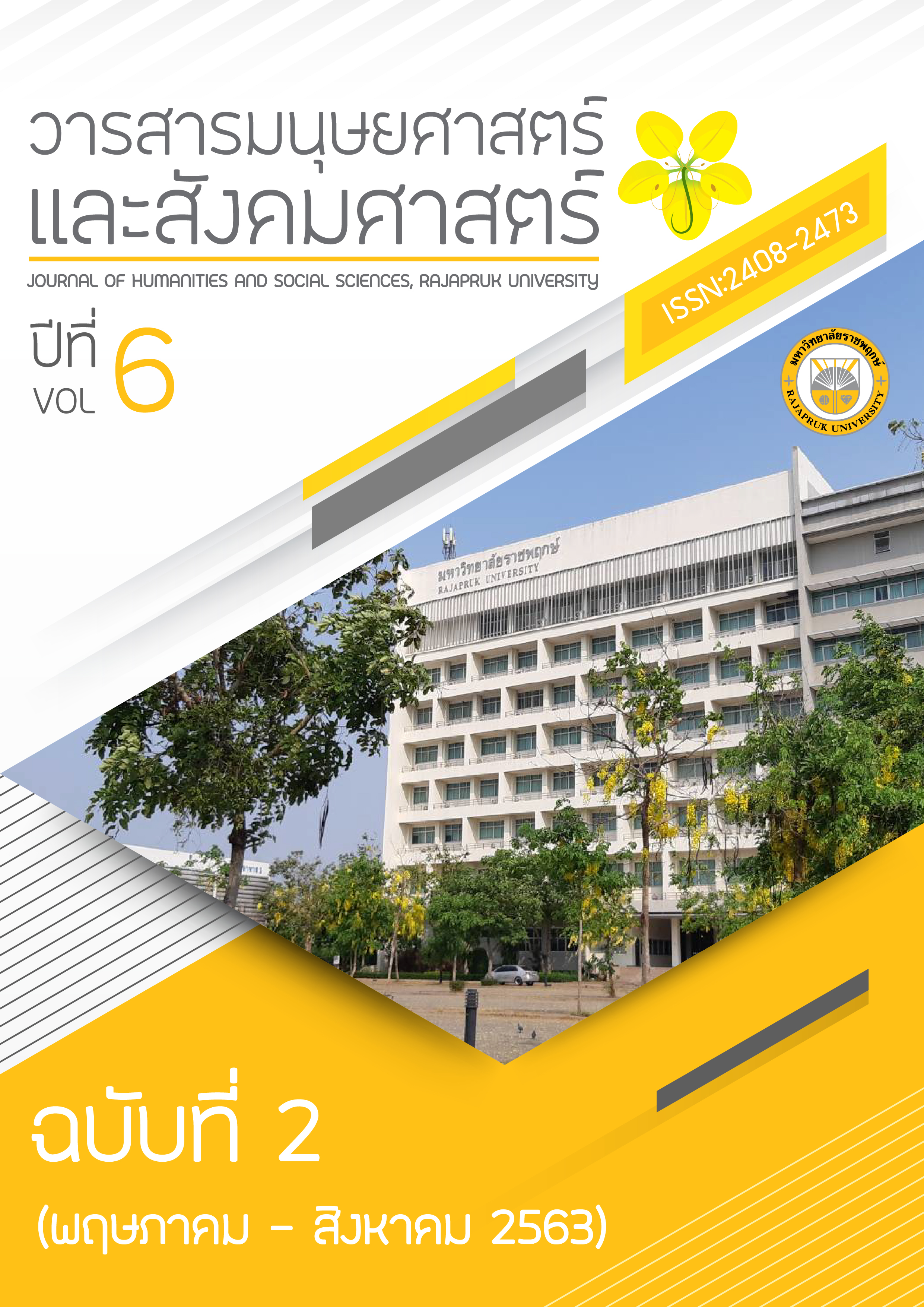The Comparative Study of Factors Influencing Work Behaviors of Generation X and Generation Y Employees in the State Universities in the Northeast Region
Main Article Content
Abstract
The purposes of this research were to: 1) study the characteristics and work behaviors of Generation X employees, 2) study the characteristics and work behaviors of Generation Y employees, 3) compare the characteristics and work behaviors of Generations X and Y employees, 4) compare the characteristics and work behaviors of Generation X employees, and 5) compare the characteristics and work behaviors of Generation Y employees in the State Universities in the Northeastern region. A questionnaire was used as an instrument for data collection. There were 317 respondents from Kalasin University, Mahasarakham University, and Nakhon Phanom University. The statistical techniques used in this research are frequency, percentage, mean, standard deviation, multiple correlation analysis, and multiple regression analysis.
The results indicate that: 1) Generation X employees in the state universities in the Northeastern region has the highest mean score of the agreeableness characteristics, 2) Generation Y has the highest mean score of the openness to experience characteristics, 3) Regarding overall work behavior, Generation X has the highest mean score of following Firm’s Regulations behavior, 4) Generation Y has the highest mean score of job satisfaction behavior, and 5) The results also suggest that Generation X employees have a nature of compromise, rule respectfulness, and dependence of their own knowledge and capabilities. Generation Y employees are always interested in job challenges, achievements, more open-minded, accepting and adapting better of various situations, including job challenging and new things preferences.
Article Details
References
กมลพร สอนศรี และ พสชนนัน นิรมิตรไชยนนท์. (2558). ปัจจัยที่มีอิทธิพลต่อพฤติกรรมการทำงานของข้าราชการ/พนักงานราชการ Generation Y. วารสารการเมือง การบริหาร และกฎหมาย, 7(1): 39-66.
จันจีรา โสะประจิน. (2553). ปัจจัยที่มีผลต่อพฤติกรรการทำงานของพนักงานผลิตชิ้นส่วนยานยนต์: กรณีศึกษา บริษัท ยานภัณฑ์ จำกัด (มหาชน). ปริญญาบริหารธุรกิจมหาบัณฑิต การจัดการทั่วไป มหาวิทยาลัยรามคำแหง.
จิรัชญา ศุขโภคา และ สันติธร ภูริภักดี. (2562). รูปแบบภาวะผู้นำของผู้บังคับบัญชาที่ส่งผลต่อประสิทธิภาพในการปฏิบัติงานของพนักงานเจเนอเรชันเอ๊กซ์และเจเนอเรชันวายในองค์กรเอกชน. Humanities, Social Science and Arts, 12(4): 1586-1600.
ณัทฐา กรีหิรัญ. (2550). การศึกษาความพึงพอใจในการปฏิบัติงานของพนักงานมหาวิทยาลัยศรีนครินทรวิโรฒ. ปริญญาการศึกษามหาบัณฑิต การอุดมศึกษา มหาวิทยาลัยศรีนครินทรวิโรฒ.
เดชา เดชะวัฒนไพศาล และคณะ. (2557). การศึกษาเจเนอเรชันเอ๊กซ์และเจเนอเรชันวายในมุมมองคุณลักษณะของตนเองและความคาดหวังต่อคุณลักษณะของเจนเอนเรชั่นอื่น. จุฬาลงกรณ์ธุรกิจปริทัศน์, 36(141): 1-17.
เดชา เดชะวัฒนไพศาล. (2552). การรับรู้คุณลักษณะของเจเนอเรชันวายและแรงจูงใจในการทำงาน: มุมมองระหว่างเจเนอเรชันต่าง ๆ ในองค์กร. จุฬาลงกรณ์ธุรกิจปริทัศน์, 31(121): 1-25.
ทิพย์วิมล จรลี. (2558). บุคลิกห้าองค์ประกอบ ความสามารถในการเผชิญและฟันฝ่าอุปสรรคและการรับรู้พฤติกรรมการเป็นสมาชิกที่ดีขององค์การ ของพนักงานกลุ่มบริษัทผลิตไฟฟ้าขนาดเล็กแห่งหนึ่ง. ศิลปศาสตรมหา
บัณฑิต จิตวิทยาอุตสาหกรรมและองค์การ มหาวิทยาลัยธรรมศาสตร์.
ธิดารัตน์ สิริวราวุธ และ วาสินี วิเศษฤทธิ์. (2561). การศึกษาความผูกพันในงานของพยาบาลวิชาชีพ Generation Y. วารสารพยาบาลทหารบก, 19(พิเศษ): 197-205.
ปทิตตา สัณหภักดี. (2550). ปจจัยจูงใจที่มีผลตอพฤติกรรมในการทํางานและความ จงรักภักดีตอองคกรของพนักงาน บริษัท บีแอนดอีจํากัด. สารนิพนธ บริหารธุรกิจมหาบัณฑิต. มหาวิทยาลัยศรีนครินทรวิโรฒ.
พะยอม วงศ์สารศรี. (2541). การบริหารทรัพยากรมนุษย์. กรุงเทพฯ: คณะวิทยาการจัดการ สถาบันราชภัฏสวนดุสิต.
รุ่งนภา ยุทดร. (2548). ความพึงพอใจในการปฏิบัติงานของข้าราชการในสถาบันเทคโนโลยีพระจอมเกล้าพระนครเหนือ. ปริญญาการศึกษามหาบัณฑิต ธุรกิจศึกษา บัณฑิตวิทยาลัย มหาวิทยาลัยศรีนครรินทรวิโรฒ.
ศรีกัญญา มงคลศิริ. (2548). Power gensbranding. กรุงเทพฯ: พิฆเณศ พริ้นท์ติ้ง เซ็นเตอร์.
สำนักงานคณะกรรมการอุดมศึกษา. (2561). สถาบันอุดมศึกษาในสังกัด. ค้นเมื่อวันที่ 2 มีนาคม 2562, จาก https://www.mhesi.go.th/home/index.php/service/45-education-service/96-higher-education-service
สุธรรม อารีกุล และคณะ. (2540). โครงการศึกษาวิจัยเรื่องอุดมศึกษาไทย วิกฤตและทางออก. กรุงเทพฯ: มหาวิทยาลัยเกษตรศาสตร์.
เสฏฐวุฒิ หนุ่มคำ และคณะ. (2559). แนวคิดและพฤติกรรมการปฏิบัติงานร่วมกันตามคุณลักษณะด้านทักษะและอาชีพในศตวรรษที่ 21 ของเจนเนเรชั่นวายและเจเนอเรชันเอ๊กซ์. วารสารวิชาการมหาวิทยาลัยฟาร์อีสเทอร์น, 10(4): 248-260.
อังคณา จรรยาวิวัฒนกุล. (2546). ปจจัยที่มีผลตอพฤติกรรมการทํางานของขาราชการ สังกัดสํานักงานงบประมาณ. วิทยานิพนธวิทยาศาสตรมหาบัณฑิต มหาวิทยาลัยรามคําแหง.
Black, K. (2006). Business Statistics for Contemporary Decision Making. 4th ed. USA: John Wiley & Son.
Costa, P.T, & McCrae R.R. (1992). Revised Neo personality inventory (Neo PI-R) and Neo five-factor inventory (Neo-FFI): professional manual. Florida: Psychological Assessment Resources.
Haserot, P. W. (2004). Another look at how Gen X and Gen Y differ. IOMA’s report on Compensation and Benefits for Law Offices, 4(3): 25-36.
Yamane, Taro. (1973). Introductory Analysis. 3th ed. Tokyo: Harper International Education.


